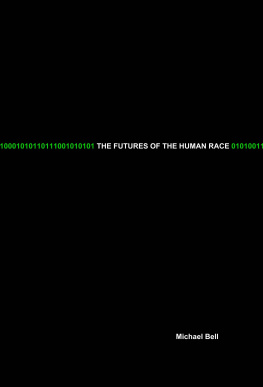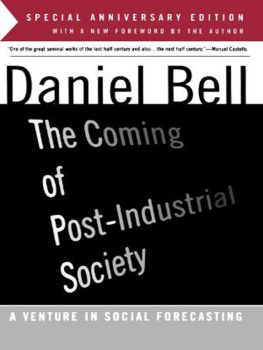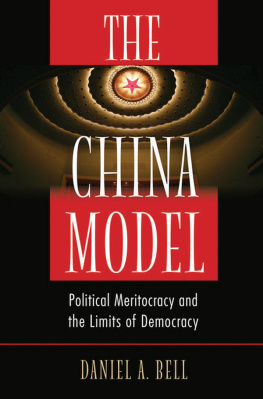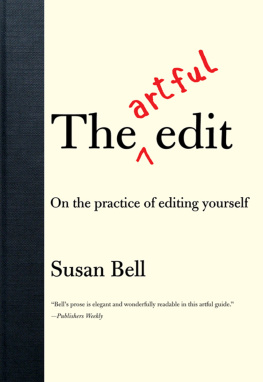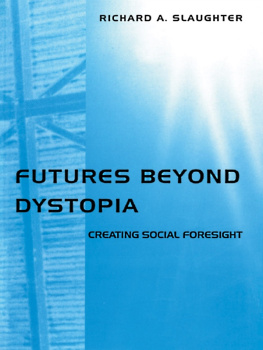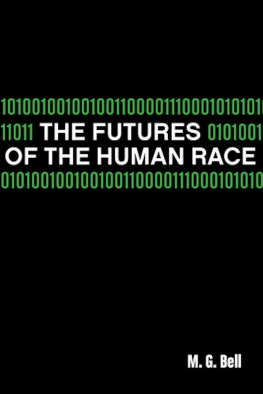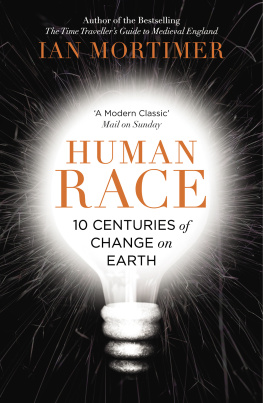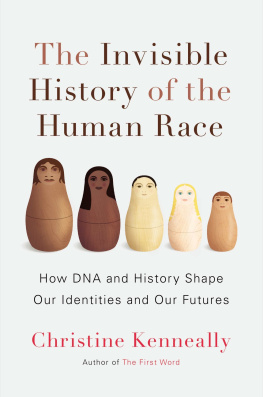Bell - The Futures Of The Human Race
Here you can read online Bell - The Futures Of The Human Race full text of the book (entire story) in english for free. Download pdf and epub, get meaning, cover and reviews about this ebook. year: 2012, publisher: Petit Pois, genre: Politics. Description of the work, (preface) as well as reviews are available. Best literature library LitArk.com created for fans of good reading and offers a wide selection of genres:
Romance novel
Science fiction
Adventure
Detective
Science
History
Home and family
Prose
Art
Politics
Computer
Non-fiction
Religion
Business
Children
Humor
Choose a favorite category and find really read worthwhile books. Enjoy immersion in the world of imagination, feel the emotions of the characters or learn something new for yourself, make an fascinating discovery.
The Futures Of The Human Race: summary, description and annotation
We offer to read an annotation, description, summary or preface (depends on what the author of the book "The Futures Of The Human Race" wrote himself). If you haven't found the necessary information about the book — write in the comments, we will try to find it.
The Futures Of The Human Race — read online for free the complete book (whole text) full work
Below is the text of the book, divided by pages. System saving the place of the last page read, allows you to conveniently read the book "The Futures Of The Human Race" online for free, without having to search again every time where you left off. Put a bookmark, and you can go to the page where you finished reading at any time.
Font size:
Interval:
Bookmark:
Publication History:
Preface:
Introduction: A Brief History Of Human Society 1.4m BC To 2015
Chapter One: Economic Globalization
Chapter Two: Cultural Globalization
Chapter Three:Fiscal Globalization
Chapter Four: Globalization Of Law And Dispute Resolution
Chapter Five:Political Globalization
Chapter Six: The World Trade Organization
Chapter Seven: The Internet
Chapter Eight: The Future Of The State
Chapter Nine:Language And Other Cultural Markers
Chapter Ten: Gaia And Other Global Stoppers
Chapter Eleven:Mechanisms Of Human Evolution In The 21st Century
Chapter Twelve:Future Roads For The Human Psyche
Chapter Thirteen: Reinventing People - Robots, Cloning, Downloading
Chapter Fourteen:The 21st Century - Narrative
Chapter Fourteen: Table
Appendix 1:List of Global Organizations
Appendix 2
Appendix 3
Appendix 4
Appendix 5
Genetic Manipulation
Duke University: Remote Control By Monkeys
RCRs, RCCs and Eclones: Their Development, Capabilities and Uses
First published in 2007; 2nd revised edition published 2015
Copyright M G Bell 2007, 2015
This book sets out to explore how humans and the society they have created may evolve in the future. Technological developments such as sentient robots and human brains uploaded into computers are no longer the stuff of science fiction; by now they are widely described and almost assumed by futurist writers. But little has been written on how such novelties will interact with our complex, deeply rooted psyches and the societal forms we inhabit.
The underlying theme of the book is that the development of our current society, and therefore its future course, can only be understood in terms of the human propensity to form groups. This innate propensity evolved early in the history of homo sapiens and was a necessary foundation for the achievement of the human race in dominating its environment through collective action.
For many hundreds of thousands or even millions of years, humans' skill at group-oriented behaviour played a central role in the evolution of human psychology and human culture, and underlay the development of all early societal forms, including the formalization of kin-group relationships such as marriage, the adoption of moral rules, the use of trade, and finally the emergence of hierarchical structures in society which allowed cities and even empires to thrive.
Until relatively recently, the collective basis of the human psyche remained the strongest driving force of our social behaviour. In the last two thousand years, however, religions aided and abetted by temporal powers gradually assumed moral hegemony in human affairs, usurping the leadership of the collective. Finally, in the last few hundred years only, technology, and specifically the invention of printing, allowed the emerging nation state to assert its dominance over all aspects of human life, subverting many of the social mechanisms that previously gave moral coherence to our existence.
For all that it was an inevitable and to some extent even beneficial stage in the development of our modern world, the nation state robs people of the ethical basis historically provided by the collective and challenges the individual to assert her own moral position. Alongside the development of the nation state, therefore, has come a cult of individuality, and an expansion of human consciousness to reinvent and accommodate the apparently lost ethical basis of life.
This is the reality that underlies the frequently bewailed moral desert of modern society, the appearance of selfish individuality as a guiding principle of existence, and as a consequence the retreat of highly sophisticated citizens of advanced countries into the arms of revivalist religions.
This book, however, delivers an optimistic message: that technology, especially in the form of the Internet, and globalization these two in fact can hardly be separated will reclaim major fields of human endeavour for the direct involvement of people, largely bypassing the nation state, and will engineer a return to happier and more satisfying types of human interaction.
To many people, these assertions will seem outlandish. For a start, most people envision 'globalization' as a soul-destroying process in which the twin molochs of government and international finance become ever more remote from individuals. The reality is exactly the opposite of this picture, painted so vividly by the anti-globalizers. Globalization, far from strengthening the State, weakens it as the unstoppable tide of rule-based international governance laps at its foundations.
Book One, 'Globalization', sketches the detail of this process, already surprisingly far advanced, under the five headings of Economics, Culture, Taxation, the Law and Politics.
Then, some will ask, how can the chaotic Internet play any useful role in improving our society? The answer is that for all its incoherence even perhaps because of it the Internet is a superlative associative mechanism. More than any other means of human expression or communication, it doesn't just allow affiliation, it drives and strengthens it, fuelled by the human need to group together. And like globalization, the Internet bypasses the State in favour of structures formed by direct interaction between individuals. The two will in fact work together to reinforce each other. The final chapter of Book One, devoted to the Internet, enlarges on these themes.
Finally, many will say that it is highly speculative to place so much importance on the group-centred origins and underpinnings of human behaviour. Indeed, the cult of individualism has gone so far in walling off our minds from our collective natures that it is has become extremely difficult to unearth the truth, buried in deep, unconscious layers of our psyches. For this reason, the book begins with an Introduction devoted to a description of how our modern society evolved. As will be seen, a phalanx of eminent writers across a wide range of disciplines, including Anthropology, Sociology, Economics and Psychology, agree that we would be nothing without groups, and that the development of society can only adequately be understood from a 'groupish' perspective (there are no satisfactory dictionary words to stand for the clumsy and inadequate 'group-centred', or the somewhat tainted 'collective' the words 'groupish' and 'groupishness' are used by a number of the authors quoted in the Introduction, and their example will be followed in this work). The Introduction therefore includes a number of references, to support the crucial importance placed here on the collective basis of our psyches.
Book Two tracks the future of major human institutions such as the nation state and language as globalization and technology begin have their effect during the first 50 years of the 21st century. Perfect, real-time translation, electricity-generating forests, robot pets, an Olympics for bionic people, access to the human subconscious, the end of compulsory work, electronic human clones, cinemas without screens, personal immortality, the beginnings of space colonization all these and many, many more innovations are likely to exist by 2060 or will be on the verge of realization. The ongoing development of 'people power' expressed through the Internet is expected to culminate in the final isolation of nation states and the creation of a world political union with direct electronic voting available to all individuals. And human groupishness will flower as electronic cognitive meeting spaces allow people to think, feel and create together with an intensity we can only guess at from our solitary individuality.
Font size:
Interval:
Bookmark:
Similar books «The Futures Of The Human Race»
Look at similar books to The Futures Of The Human Race. We have selected literature similar in name and meaning in the hope of providing readers with more options to find new, interesting, not yet read works.
Discussion, reviews of the book The Futures Of The Human Race and just readers' own opinions. Leave your comments, write what you think about the work, its meaning or the main characters. Specify what exactly you liked and what you didn't like, and why you think so.

